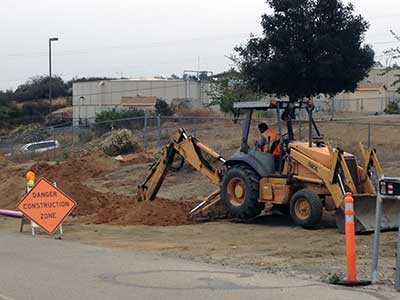Where: Rural San Diego County, California
Problem: Rural San Diego County communities face numerous challenges to provide safe drinking water to residents.
Solution: RCAC works with partners to access state grant funding to improve water infrastructure for several disadvantaged communities (DACs) in rural San Diego County.
 In 2006, California voters passed Proposition 84, or “The Safe Drinking Water, Water Quality and Supply, Flood Control, River and Coastal Protection Bond Act.” The law authorizes more than $5.3 billion in general obligation bonds to fund a bevy of water-related projects and state and local park improvements. Integrated Regional Water Management (IRWM) programs manage Proposition 84 grants across the state.
In 2006, California voters passed Proposition 84, or “The Safe Drinking Water, Water Quality and Supply, Flood Control, River and Coastal Protection Bond Act.” The law authorizes more than $5.3 billion in general obligation bonds to fund a bevy of water-related projects and state and local park improvements. Integrated Regional Water Management (IRWM) programs manage Proposition 84 grants across the state.
RCAC prepared grant applications under the bond measure from San Diego IRWM, and received funding for partners to do work in rural San Diego County. Two grant funded projects are in progress, and a third will begin in 2016. In the first round of Proposition 84, RCAC received a $485,000 grant to assist two DACs. One project will fund engineering and design work for a treatment system at Quiet Oaks Mobile Home Park in Warner Springs. The second project will fund water meter installations for the La Jolla Band of Luiseño Indians in Pauma Valley, so the Tribe can better mea¬sure its water use.
In the second round of funding, RCAC received a $1.4 million grant to assist two more DACs in San Diego County. One grant will support a reclaimed water system installation for the San Pasqual Band of Mission Indians in Pauma Valley. The second will help fund a project to connect the Pauma Valley Municipal Water District (PVMWD) to the Yuima Water District. This will support safe potable water for households in the Pauma Valley.
In round four, RCAC will receive a $3 million grant to assist 10 DACs on a variety of water treatment and environmental projects.
“I’ve worked with RCAC on a number of projects throughout the years,” says John Flores, environmental director and water manager for the San Pasquale tribe. “And every experience has been extremely satisfying. With the IRWM funding, we wouldn’t have pursued that if not for RCAC, because as a tribe, we’ve generally gone after just federal funding. So we were very happy to partner with RCAC on this project.”
